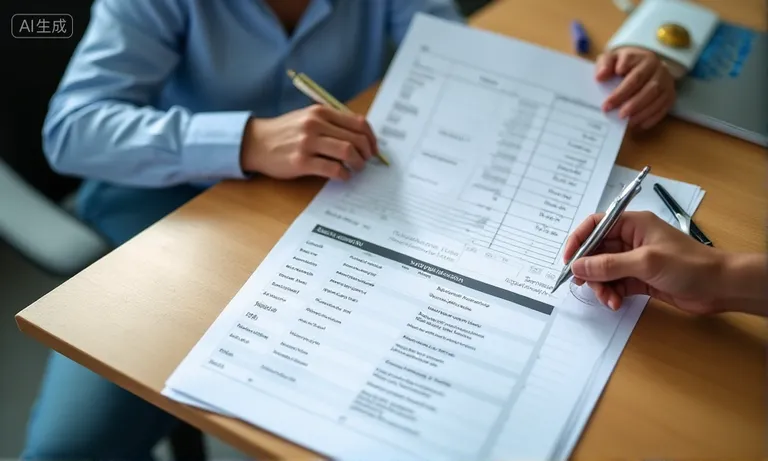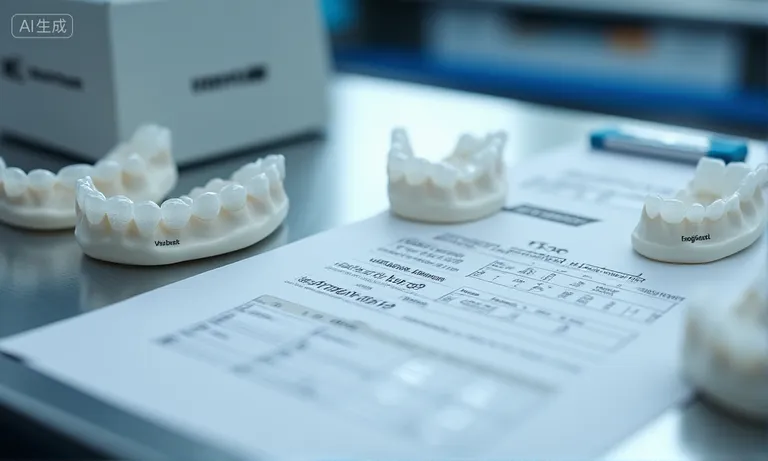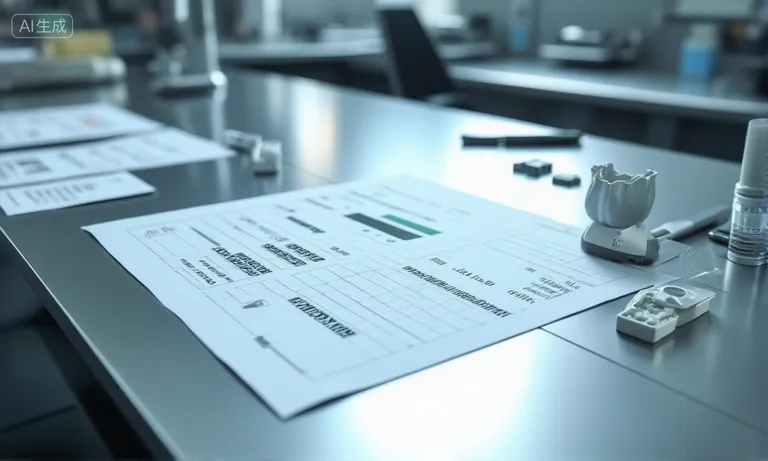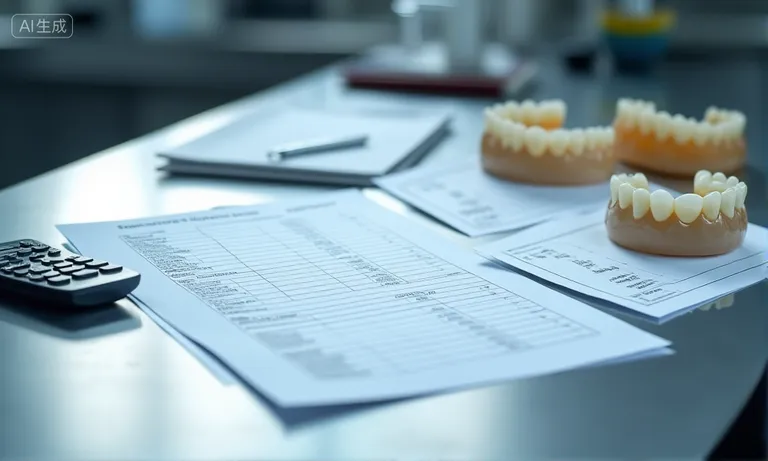Certifications and compliance standards define the reliability of a dental implant lab. Buyers and procurement managers rely on internationally recognized frameworks such as ISO 13485, CE marking, FDA registration, and regional approvals to ensure products are manufactured safely, consistently, and in alignment with medical device regulations.
Procurement teams focus on six key dimensions:
- International quality systems (ISO 13485, MDSAP) for global alignment
- Regional regulatory approvals (FDA, CE, TGA/PMDA/SFDA) for market entry
- Industry certifications (DAMAS, CDL, CDT) that show professional accountability
- Material safety and traceability with ISO/ADA standards, MSDS, and biocompatibility testing
- Operational compliance with OSHA, HIPAA, GDPR to safeguard staff and data
- Verification practices including document review and third-party audits
By understanding these layers of certification, procurement leaders minimize risk, streamline supplier qualification, and secure partnerships with overseas dental labs that meet global expectations. Robust compliance not only protects patients and ensures regulatory acceptance but also signals a lab’s readiness for sustainable, long-term collaboration.
Why certifications and compliance matter for dental implant labs
Certifications and compliance in dental implant labs are essential because they safeguard patient safety, reduce procurement risks, and ensure market access across multiple regions. For decision-makers, understanding these requirements is not just about paperwork—it is about minimizing liability and ensuring that restorations meet consistent quality standards.

dental-lab-certification-audit
How certifications strengthen quality assurance and risk management
Certifications such as ISO 13485 provide a structured quality management framework that covers every stage of the dental implant workflow. By embedding standard operating procedures, labs can reduce remake rates and avoid quality disputes. From a factory perspective, having certified processes also builds trust during audits, as clients can verify that cases are handled under documented quality controls.
Why compliance reduces procurement and regulatory risks
For overseas buyers, working with uncertified labs introduces hidden risks—products may fail customs inspections, or worse, fail in clinical use due to nonconformance. Regulatory compliance minimizes these risks by aligning lab operations with international norms. This gives procurement managers greater confidence that supply will not be disrupted by enforcement actions or recalls.
The role of certifications in global market access
Certifications act as passports to global trade. Without FDA registration, CE marking, or equivalent local approvals, dental restorations cannot legally enter certain markets. A Chinese dental lab that aligns with multiple certification systems can support distributors and clinics to expand internationally, providing smoother entry into regulated regions. This is why certifications are not optional—they are strategic assets in global supply chains.
When viewed from the procurement side, certifications are more than a checklist—they are the foundation for quality assurance, legal compliance, and reliable collaboration with overseas partners.
What international quality standards are mandatory for dental implant labs
The mandatory international standards for dental implant labs include ISO 13485 for medical device quality management, ISO 9001 for general process consistency, and MDSAP for multi-country regulatory compliance. Together, these standards establish a recognized global framework that ensures consistent product quality, legal acceptance, and smoother international distribution.

dental-lab-international-standards
ISO 13485: Medical device quality management system
ISO 13485 is the most critical standard for dental implant labs because it sets a dedicated quality management system for medical devices. It covers design, production, documentation, and post-market surveillance. For labs, compliance means every restoration is manufactured under a controlled process, with full traceability and documented risk management. Overseas procurement teams often make ISO 13485 certification a non-negotiable requirement when evaluating suppliers.
ISO 9001 and its relevance to dental manufacturing
While ISO 9001 is not specific to medical devices, it ensures that overall business processes—such as leadership, resource allocation, and continuous improvement—are well managed. In dental manufacturing, ISO 9001 complements ISO 13485 by aligning management systems with broader quality principles.
| Standard | Focus | Relevance to Dental Labs |
|---|---|---|
| ISO 13485 | Medical device quality management | Directly governs production of dental implants and restorations |
| ISO 9001 | General quality management | Improves overall lab efficiency and consistency, supports non-device processes |
MDSAP: multi-country regulatory compliance through single audit
The Medical Device Single Audit Program (MDSAP) allows a lab to be audited once and recognized in multiple countries, including the U.S., Canada, Australia, Brazil, and Japan.
- Reduces duplication of audits across markets
- Speeds up regulatory approvals in participating regions
- Builds credibility with multinational distributors
Labs that achieve MDSAP certification demonstrate readiness for complex, multi-country partnerships, giving procurement managers greater confidence in cross-border sourcing.
For global buyers, these international standards serve as a common language of trust. They not only minimize compliance risks but also make collaboration with overseas dental labs more predictable and scalable.
What international quality standards are mandatory for dental implant labs
The mandatory international standards for dental implant labs include ISO 13485 for medical device quality management, ISO 9001 for general process consistency, and MDSAP for multi-country regulatory compliance. Together, these standards establish a recognized global framework that ensures consistent product quality, legal acceptance, and smoother international distribution.

dental-lab-international-standards
ISO 13485: Medical device quality management system
ISO 13485 is the most critical standard for dental implant labs because it sets a dedicated quality management system for medical devices. It covers design, production, documentation, and post-market surveillance. For labs, compliance means every restoration is manufactured under a controlled process, with full traceability and documented risk management. Overseas procurement teams often make ISO 13485 certification a non-negotiable requirement when evaluating suppliers.
ISO 9001 and its relevance to dental manufacturing
While ISO 9001 is not specific to medical devices, it ensures that overall business processes—such as leadership, resource allocation, and continuous improvement—are well managed. In dental manufacturing, ISO 9001 complements ISO 13485 by aligning management systems with broader quality principles. Buyers can review the ISO 9001 standard overview to understand how it supports operational consistency beyond device-specific processes.
| Standard | Focus | Relevance to Dental Labs |
|---|---|---|
| ISO 13485 | Medical device quality management | Directly governs production of dental implants and restorations |
| ISO 9001 | General quality management | Improves overall lab efficiency and consistency, supports non-device processes |
MDSAP: multi-country regulatory compliance through single audit
The Medical Device Single Audit Program (MDSAP) allows a lab to be audited once and recognized in multiple countries, including the U.S., Canada, Australia, Brazil, and Japan.
- Reduces duplication of audits across markets
- Speeds up regulatory approvals in participating regions
- Builds credibility with multinational distributors
Labs that achieve MDSAP certification demonstrate readiness for complex, multi-country partnerships, giving procurement managers greater confidence in cross-border sourcing.
For global buyers, these international standards serve as a common language of trust. They not only minimize compliance risks but also make collaboration with overseas dental labs more predictable and scalable.
Which regional regulatory approvals are essential for market access
Regional regulatory approvals such as FDA registration for the U.S., CE marking under the EU MDR, and local pathways like TGA in Australia, PMDA in Japan, and SFDA in China are essential because they determine whether dental implants can legally enter and remain in those markets. Without these approvals, even high-quality restorations cannot be distributed or used clinically.

dental-lab-regulatory-approvals
FDA registration and cGMP requirements for the U.S. market
The U.S. Food and Drug Administration (FDA) requires dental implant labs to register and comply with current Good Manufacturing Practices (cGMP). This framework ensures device safety, labeling accuracy, and traceability. Noncompliant imports risk being seized at customs or recalled. For procurement teams, verifying FDA registration through the FDA medical devices registration database is a critical step before entering contracts.
CE marking process under EU MDR
Under the European Union Medical Device Regulation (EU MDR), CE marking certifies that dental implants meet essential health and safety requirements. The process typically involves:
- Classifying the device under MDR rules
- Preparing technical documentation
- Undergoing a notified body audit
- Receiving a CE certificate and affixing the CE mark
CE marking allows free circulation of products across EU member states, making it one of the most valuable certifications for global market access.
TGA (Australia), PMDA (Japan), SFDA (China) and other local pathways
Beyond the U.S. and EU, labs must also comply with local regulators:
- TGA (Australia): Requires device inclusion in the Australian Register of Therapeutic Goods (ARTG)
- PMDA (Japan): Involves strict pre-market approval, often requiring local representation
- SFDA (China): Demands comprehensive clinical evidence and documentation before approval
- Other regions: Countries such as Canada or Brazil rely on their own frameworks, sometimes aligned with MDSAP audits
By mapping regulatory pathways early, buyers reduce the risk of shipment delays and ensure smoother integration into local markets.
For dental implant procurement managers, regional approvals are not just technical hurdles—they are the legal gatekeepers of international trade. Choosing labs that already comply with these approvals reduces entry barriers and builds long-term market security.
What industry-specific certifications and professional guidelines exist
Industry-specific certifications and professional guidelines such as DAMAS, CDL/CDT, and ADA or ISO standards for dental materials strengthen credibility, standardize production, and provide external validation that labs follow recognized best practices. These certifications go beyond legal compliance and signal to buyers that a lab is committed to continuous improvement and professional accountability.
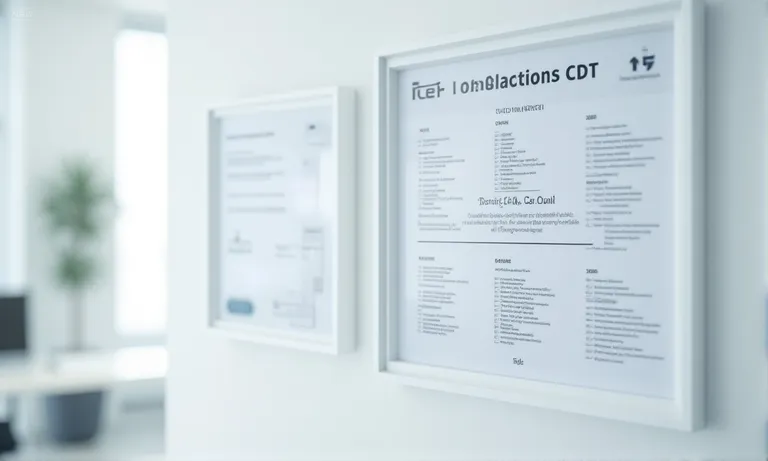
dental-lab-industry-certifications
DAMAS: Dental Appliance Manufacturers Audit Scheme
The Dental Appliance Manufacturers Audit Scheme (DAMAS) is a UK-based quality system specifically for dental laboratories. It requires labs to follow documented procedures for material traceability, staff training, and quality assurance. Although primarily adopted in the UK, DAMAS provides international buyers with confidence that a lab has undergone an independent audit process dedicated to dental appliances.
CDL (Certified Dental Laboratory) and CDT (Certified Dental Technician)
Professional certifications such as CDL for labs and CDT for technicians are widely recognized in North America. They signal that both the organization and its technicians have met high benchmarks of technical skill, safety, and ongoing education.
- CDL: Recognizes laboratories that adhere to rigorous production and quality standards
- CDT: Recognizes individual technicians for professional competence in specialized disciplines
These designations reassure buyers that the team behind implant restorations has demonstrated qualifications beyond regulatory minimums.
ADA and ISO standards for dental materials
Dental material safety and performance are regulated through standards from the American Dental Association (ADA) and the International Organization for Standardization (ISO).
| Organization | Standard Type | Relevance |
|---|---|---|
| ADA | Material specifications and clinical performance | Ensures dental alloys, ceramics, and resins meet professional guidelines |
| ISO | International standards for biocompatibility and durability | Provides a globally harmonized benchmark for material testing and acceptance |
By adhering to both ADA and ISO standards, labs demonstrate that materials used in implants are safe, durable, and internationally validated.
For procurement teams, industry-specific certifications provide a clear signal of professionalism and accountability. Choosing a lab that meets these guidelines reduces uncertainty, enhances trust, and ensures smoother collaboration with global partners.
How material safety and traceability are ensured
Dental implant labs ensure material safety and traceability by conducting biocompatibility testing, maintaining proper documentation such as MSDS and lot records, and undergoing continuous audits from internal teams or third-party organizations. These measures protect patients, reduce procurement risks, and give buyers confidence that every restoration is produced under strict material controls.
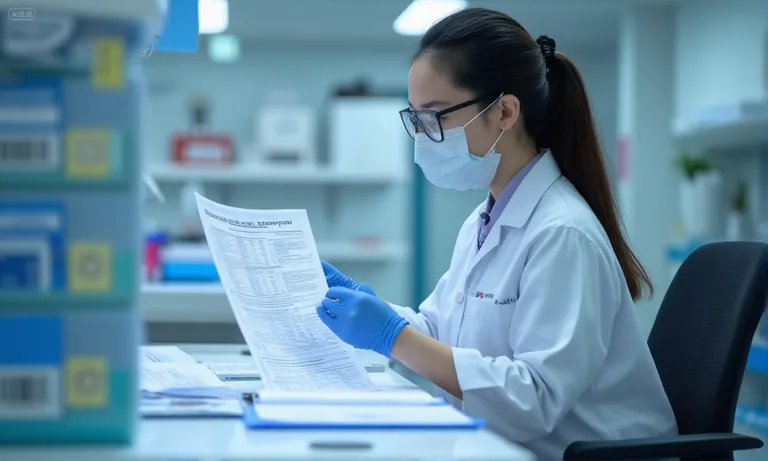
dental-lab-material-traceability
Biocompatibility testing according to ISO 10993
Biocompatibility is a non-negotiable requirement in implant dentistry. Testing under ISO 10993 verifies that materials do not cause toxicity, sensitization, or long-term biological harm. Dental labs sourcing alloys, ceramics, and polymers must ensure suppliers provide ISO 10993-compliant test reports. This validation allows procurement teams to trust that restorations are safe for patient use.
Documentation requirements: MSDS, conformity statements, lot traceability
Maintaining proper documentation ensures transparency across the supply chain.
- MSDS (Material Safety Data Sheets): Outline handling, composition, and safety measures for raw materials
- Statements of Conformity: Confirm that materials meet regulatory and quality requirements
- Lot Traceability: Links each restoration to its specific material batch, enabling targeted recalls if issues arise
For buyers, these documents provide reassurance that a lab can prove exactly which material went into each case.
Continuous improvement through audits and third-party inspections
Ongoing monitoring is essential to maintain trust.
| Audit Type | Purpose | Benefit to Buyers |
|---|---|---|
| Internal audits | Verify adherence to SOPs and training | Ensures lab maintains consistency day to day |
| External third-party audits | Independent validation of processes | Builds buyer confidence with unbiased evidence |
| Customer-driven audits | Direct oversight from procurement teams | Provides hands-on assurance before scaling cooperation |
Labs that welcome third-party and client audits often demonstrate a higher level of operational maturity, making them more reliable long-term partners.
For procurement managers, robust material safety and traceability measures are not optional—they are safeguards that directly protect patients and brand reputation. Labs that invest in these controls show they understand the critical role of compliance in global dental supply chains.
What operational compliance requirements should labs follow
Dental implant labs must follow operational compliance requirements that include workplace safety standards, data protection regulations, and continuous training with internal audits. These measures ensure safe environments, protect patient information, and maintain readiness for external inspections—factors that directly affect procurement reliability.
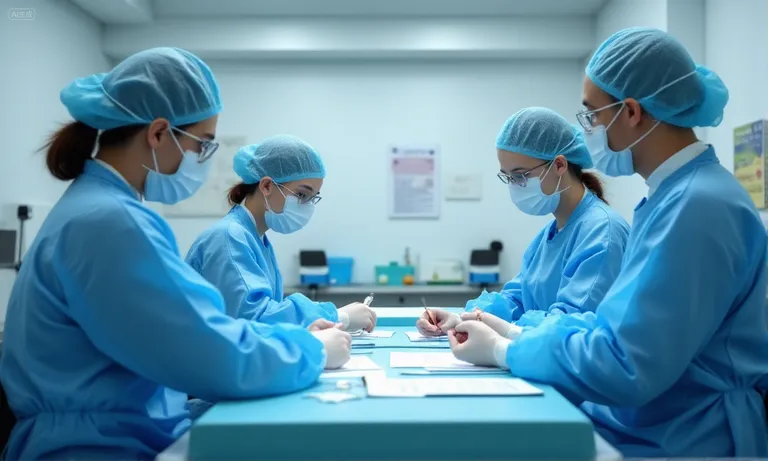
dental-lab-operational-compliance
OSHA and workplace safety standards
Labs must comply with occupational safety rules to protect staff and maintain productivity.
- Protective equipment: Gloves, masks, and ventilation for dust and chemical safety
- Workstation safety: Proper ergonomics and machine guarding
- Hazard communication: Clear labeling of chemicals and risk signage
Following OSHA workplace safety standards not only reduces accidents but also reassures procurement managers that the lab has stable operational capacity.
HIPAA and GDPR for patient data protection
Data protection is often overlooked in manufacturing, but labs handling digital scans and patient information must comply with HIPAA (U.S.) and GDPR (EU). These frameworks regulate how personal health data is stored, transmitted, and shared. A compliant lab encrypts files, controls access to sensitive data, and trains staff in privacy protocols. For procurement managers, this reduces the risk of regulatory fines and reputational harm if breaches occur.
Training and internal audits to maintain compliance readiness
Compliance is not a one-time exercise but an ongoing process. Labs can maintain readiness through:
- Regular staff training on updated regulations and SOPs
- Scheduled internal audits to detect gaps before external inspections
- Corrective actions documented and tracked for accountability
- Mock audits simulating client or regulator reviews
Labs that invest in systematic training and self-assessment demonstrate operational maturity, making them more resilient partners in long-term cooperation.
Operational compliance ensures that a lab is not just technically qualified but organizationally reliable. For global buyers, this reduces hidden risks and builds confidence in the lab’s ability to handle scale without disruption.
How to verify a dental lab’s certifications and compliance
Procurement teams can verify a dental lab’s certifications and compliance by requesting documentation, checking certificate authenticity through official databases, and being alert to red flags in claims. These steps ensure that partnerships are based on reliable, proven standards rather than unsupported promises.

verifying-dental-lab-certifications
What documents to request during supplier evaluation
Buyers should ask for a structured package of compliance records, including:
- ISO certificates relevant to medical devices (ISO 13485, ISO 9001)
- Regulatory approvals such as FDA registration or CE marking
- Audit reports from MDSAP, DAMAS, or third-party agencies
- Material compliance records (MSDS, statements of conformity, lot traceability)
These documents provide a baseline of evidence that a lab operates under recognized quality and safety systems.
How to check validity and authenticity of certificates
Verification should follow clear steps:
- Check issuing body: Ensure the certificate is issued by an accredited body, not a generic or unknown entity
- Confirm through databases: Use official portals such as IAF CertSearch to validate ISO certificates
- Verify expiration dates: Outdated certificates may signal compliance lapses
- Cross-check with regulators: For FDA or CE approvals, confirm listings directly on government websites
This process prevents reliance on outdated or fabricated documents.
Common red flags in compliance claims
Procurement managers should be cautious if they encounter:
- Certificates without verifiable accreditation logos
- Labs unwilling to share full audit or inspection reports
- Inconsistent document formatting, missing signatures, or altered seals
- Overly generic compliance statements without specific standards listed
Spotting these signals early helps avoid costly risks in supply partnerships.
Verifying certifications and compliance is not only about documentation—it is a test of a lab’s transparency and willingness to be accountable. Reliable overseas dental labs, such as Raytops Dental Lab, typically welcome such scrutiny, as it reinforces buyer trust and supports long-term collaboration.
Conclusion
Certifications and compliance are not just checkboxes but the foundation of trust in global dental implant sourcing. By aligning with internationally recognized standards and regional regulations, buyers protect patients, reduce risk, and secure predictable outcomes. For procurement managers, this means confidence that every restoration meets both clinical and regulatory expectations. Partnering with an overseas dental lab that embraces transparency, safety, and continuous audits ensures smoother collaboration and fewer disruptions. When a lab demonstrates readiness across quality systems, operational compliance, and material traceability, it becomes more than a supplier—it becomes a reliable extension of the clinical team.
